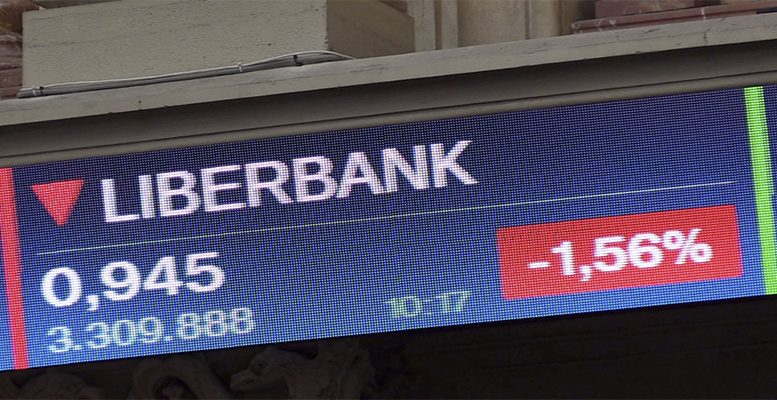Fernando Rodríguez | The suspension on short-selling in Liberbank, which the CNMV has enforced for a month, has not left stock market players indifferent. Experts, fund managers, traders, analysts and lawyers, traditionally opposed to interference in the workings of the capital markets, are doubtful about the reach of such an exceptional measure. At the same time, they support the usefulness of the short-sellers.
The Single Resolution Mechanism (SRM)’s surprise intervention in Banco Popular increased the selling pressure on Liberbank, causing the share price to fall 43% in three sessions. This was behind the CNMV’s decision to prohibit short-selling for a month.
Adopting such a significant measure needs the express authorisation of the European stock market regulator – the ESMA – which only grants it in exceptional circumstances. Fernando Zunzunegui, lawyer and professor of financial market law at the Carlos III University in Madrid, says that .
“ESMA believes the situation described by the CNMV represents an adverse scenario for the Spanish financial system, with an impact also for the European system. Liberbank is a bank which has significant importance at a European level, supervised by the European Central Bank, under the umbrela of the Single Supervisory Mechanism (SSM). The decision on Banco Popular created a risk of contagion with a domino effect which could become systemic. The resolution of Banco Popular’s situation has closed a chapter in Spain’s banking crisis and opened another one, with a European dimension”.
The CNMV’s intervention in Liberbank throws up at least two reasonable doubts: why did the supervisor not help Banco Popular earlier, letting the share price fall practically to zero? And why is such an exceptional measure for manipulating the market being enforced for such a long period – a whole month?
Jorge Nuño, fund manager at Fidentiis, justifies the temporary suspension on short-selling:
“It’s prudent to limit its use in certain circumstances. What happened with Liberbank was more of a contagion panic effect because of Popular rather than a fundamental reaction sparked by some exceptional event. It’s a way of protecting shareholders, particularly with shares which are so illiquid. In stress situations, the suspension is an extension of what is known as volatility auctions, which happen every day in every market, not just in Europe.”
According to Nuño, the suspension allows the company in question’s management team “to differentiate its case from others and lets investors understand and study the situation.” As a matter of fact, immediately after the suspension, Liberbank’s management team was explaining the bank’s fundamental aspects to fund managers and investors.
“What happened with Popular has nothing to do with Liberbank nor was it the result of short-selling,” Nuño concludes.
Zunzunegui is not so kind.
“The CNMV has made a mistake. It makes no sense at all: with Liberbank yes, and with Popular, no. The measure has been implemented from a political standpoint to protect a savings bank and it is an example of market manipulation. Popular’s share price was allowed to drop to nearly zero to minimise the losses. We could come to share the strategy, but how is it possible that de Guindos knew that things were not going well and failed to communicate this to the market as a relevant fact?.”
The case of Liberbank has called into question what has been, up to now, the undeniable fundamental role of speculation in the formation of prices and the efficient workings of the markets. Little by little, the negative atmosphere extends to those who develop investment strategies for making money when the markets and stocks drop. Antonio Sáez del Castillo is a card-carrying short-seller, student of the stock markets, and probably one of the first day traders, ahead of his time, in the contemporary Spanish bourse.
He believes that “the functioning of price differences is implicit in the purpose of the organised and institutionalised markets”.
The author of “A discourse on financial euphorias and crises”, amongst many other works, is suprised that “no-one mentions exaggerated volatility when prices rise.” Sáez del Castillo has always maintained that share prices are “pushed up and pushed down.”





